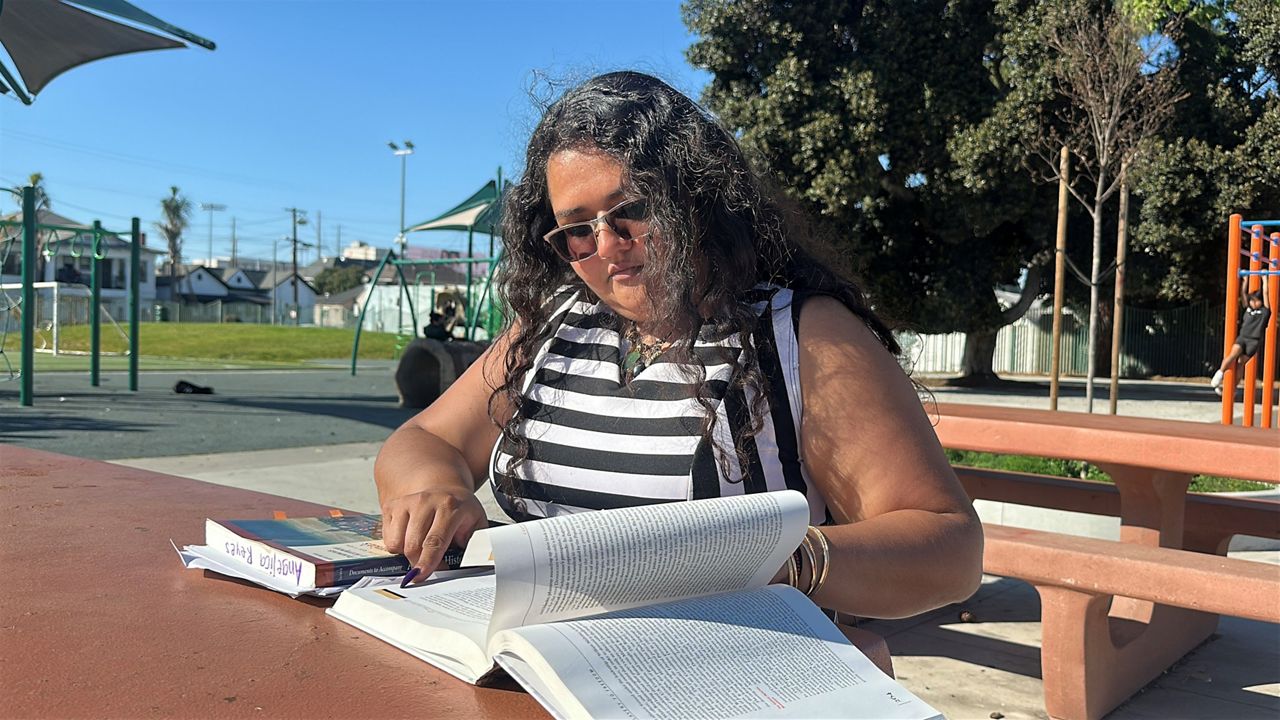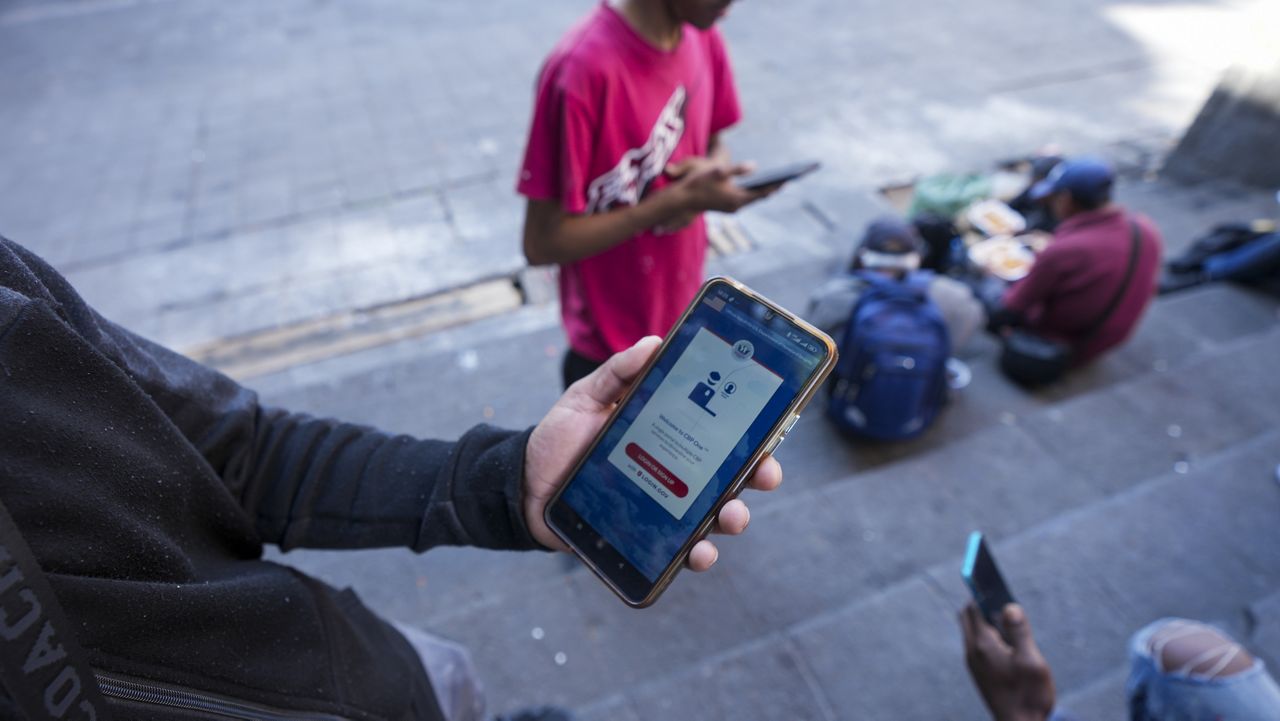LOS ANGELES — Teaching the Constitution is not just about meeting the curriculum for high school history teacher Angélica Reyes.
It is a resource for her students to know their rights at a time where she says immigration policy is causing heightened uncertainty.
In Los Angeles, 1 in 4 of the nearly 30,000 immigrant students at the Los Angeles Unified School District are undocumented, according to United Teachers Los Angeles. Across the state, 1 in every 5 students is part of a mixed-status family, meaning at least one parent is undocumented.
Reyes said undocumented communities have never felt safe, but that fear escalated when the Trump administration came into office this year.
“Kids are scared. My children are super scared. They keep reminding me like, ‘Hey,' he said, 'He’s going to take away the 14th amendment. Ms., he’s trying to take away birthright citizenship.’ It’s funny because they know what that is now. A lot of times, children just took that for granted and now students are hyperaware of the rights that they could potentially lose with this administration,” Reyes said.
Reyes knows the pain her students are going through because she was once that student too. She came to the U.S. from Mexico as a baby and has lived her entire life being hyperaware of immigration policy.
She has since been able to go to college and work as part of the Deferred Action for Childhood Arrivals or DACA program. Still, she said she is not only afraid for her own future in this country but frustrated to see yet another generation of students have to worry about anything other than their grades.
“It’s heartbreaking to see children who are supposed to be worried about what their next outfit is going to be or who’s going to be playing in their game at lunch, seeing that they’re concerned about whether their parents are going to be there or not. Whether they’re going to be taken,” Reyes said.
Schools, hospitals and places of worship have historically been protected from immigration enforcement activity, but when President Trump began his second term, the Department of Homeland Security lifted restrictions on immigration arrests at schools.
As a result, Reyes said attendance has taken a hit.
“There was an issue with attendance. Children are wondering like, what does it mean to be a sanctuary school? Can they even do anything about it? You know, we live in a sanctuary city in LA, but we know that ICE raids are happening,” Reyes said.
California is one of the handful of states that has attendance tied to funding, and so with parents scared to send their kids to school because of concerns over ICE raids, it does jeopardize funding for districts.
It’s why LAUSD Superintendent Alberto Carvahlo reaffirmed they have protocols in place.
“I can assure you, up until now, we have not had a single incident involving an attempted enforcement of immigration law, nor shall we allow it within our schools. We are supported by a city, a county and the state whose law actually protects our actions at this point. We have informed communities, parents and students about their rights,” Carvalho said.
Their effort is hoping to protect undocumented students in the district like, Ramona, a senior student, who is choosing to conceal her name out of safety concerns for her and her undocumented parents
“I feel like my anxiety got worse, because like, every day I’m scared of coming back and I don’t find my parents or I don’t find one of my family members or even myself. I can’t even imagine how my parents are going to feel if they don’t find me one day. Or I feel anxious if they don’t know how to answer to the immigration agents or how I’m going to be able to find them. So like, I’m worried every day. It’s my first thought when I wake up, and my last thought when I go to sleep,” Ramona said.
Ramona came to the U.S. from Mexico five years ago and said it was difficult making friends and keeping up with school without having the language down.
She has since found her community through sports and school clubs, but says her grades took a hit when the Trump administration took office.
“When the administration changed, I was like, what I’m doing here? I just want to go home and I wanted to stop. It affected my academics because, in the beginning, [I thought] like, it’s not worth it,” Ramona said.

Reyes said many of her students shared that same sentiment, and it’s reflecting with a drop in grades.
“Even students who are U.S. citizens, they were like, ‘What’s the point of this? There’s not going to be any equality. They’re not going to hire me regardless of how qualified I am,'" Reyes said.
Many parents are also feeling the same anxiety and it’s why Reyes, along with other educators, have hosted virtual and in-person teach-ins for parents to learn about their constitutional rights. She says they also talk to them about affidavits that they could fill out, signing over their child’s guardianship to somebody they trust in case they get deported or detained by ICE. Without that paper, she explains the child is usually taken in and placed into the foster system.
At the state level, Superintendent Tony Thurmond on Wednesday presented SB48, a bill that would limit the presence of ICE agents on school campuses to the state senate education committee.
While that goes through the legislative process, Reyes said they will continue to lean on the community to ease everyone’s worries.
“We need to work together to defend our rights, because if not, we’ve seen in history what happens when we let folks who want to play dictator take away rights,” Reyes said.











